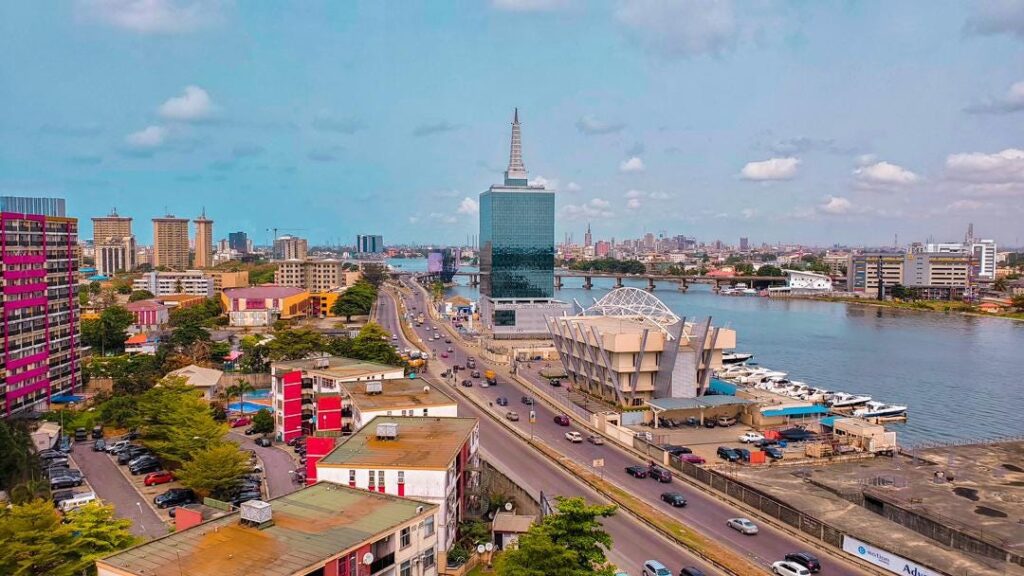How to Choose the Best Location for Property Investment in Nigeria: A Comprehensive Guide
Investing in real estate is one of the most lucrative ways to build wealth in Nigeria, given the country’s rapid urbanization, growing middle class, and increasing demand for housing and commercial spaces. However, with a diverse range of cities, neighborhoods, and property types to choose from, selecting the right location for investment can be a daunting task. Whether you are looking to invest in residential, commercial, or mixed-use properties, the location you choose will play a pivotal role in determining the success of your investment.
In this blog post, we’ll explore the key factors to consider when choosing the best location for property investment in Nigeria. By understanding these factors, you can make informed decisions that will maximize your returns and minimize risks.
1. Understanding the Local Market Dynamics
Before selecting a location for investment, it is important to understand the local market dynamics of the area you are considering. Nigeria is a vast country with diverse economic and demographic characteristics across its regions, and each market behaves differently. Real estate markets in cities like Lagos, Abuja, and Port Harcourt may vary drastically in terms of pricing, demand, and growth potential.
Factors to Consider in Local Market Dynamics:
- Population Growth: Locations experiencing rapid population growth are often ideal for investment. As more people move into urban areas, the demand for both residential and commercial properties rises. For instance, Lagos, Abuja, and Kano are seeing significant population growth, which translates into increased demand for housing and office spaces.
- Economic Activity: Cities with strong economic growth and commercial activity are more likely to offer profitable property investment opportunities. For example, Lagos remains the commercial capital of Nigeria, with a thriving business environment and high demand for real estate.
- Government Spending: Consider areas where government spending is focused, such as infrastructure development, housing projects, and urban renewal schemes. These areas often see a rise in property values due to improved amenities and connectivity.
2. Infrastructure Development: A Key Driver of Property Value
Infrastructure is one of the most important factors affecting property values. Areas with better roads, public transport systems, power supply, and social amenities like hospitals, schools, and shopping centers tend to see higher demand for real estate. Additionally, as new infrastructure projects are announced or completed, surrounding property values often appreciate significantly.
Key Infrastructure Developments to Watch:
- New Roads and Expressways: New roads, bridges, and highways improve accessibility and reduce commute times, which can lead to a spike in property demand in the affected areas. For example, the ongoing construction of the Lekki-Epe Expressway has boosted property values in Lekki and Ajah as more people seek to take advantage of better connectivity.
- Public Transport Systems: Developments like the Lagos Rail Mass Transit (LRMT) and improved bus networks are transforming how people move around urban centers. Proximity to these transport hubs can increase the desirability of properties. Areas near the rail stations in Yaba and Surulere are already seeing rising property prices due to the rail’s expected completion.
- Other Amenities: Access to schools, hospitals, shopping malls, and recreational facilities also drives demand. Areas with a good mix of these amenities, like Victoria Island in Lagos or Garki in Abuja, are prime locations for both residential and commercial real estate investments.
3. Strategic Location and Proximity to Key Areas
The proximity of a location to key areas such as business districts, government offices, commercial centers, and other vital facilities can influence its desirability. Investors should focus on areas that are well-connected and easily accessible, especially those with access to main roads, highways, and public transport options.
Factors to Consider for Strategic Location:
- Proximity to Business Hubs: Areas close to business districts such as Victoria Island and Ikoyi in Lagos, or Maitama and Asokoro in Abuja, are ideal for commercial real estate investments. These areas have a high demand for office spaces, retail outlets, and mixed-use developments due to their proximity to major commercial activities.
- Access to Transportation Networks: Consider locations near transportation hubs, such as airports, bus terminals, and rail stations. For example, areas near Nnamdi Azikiwe International Airport in Abuja and Murtala Muhammed International Airport in Lagos are attractive for investors looking to develop commercial and hospitality properties.
- Residential Proximity: In terms of residential real estate, it’s essential to identify areas that are close to employment centers, schools, hospitals, and recreational facilities. Neighborhoods like Lekki, Ikeja, and Abuja’s Wuse 2 provide convenience, making them highly desirable for renters and buyers alike.
4. Real Estate Market Trends and Data Analysis
To make an informed decision, you need to have access to accurate and up-to-date real estate market trends. Property values and rental yields fluctuate based on several factors, including supply and demand, the state of the economy, and the broader development of the region.
How to Analyze Real Estate Market Trends:
- Property Appreciation Rates: Look at historical property appreciation rates in the area. Areas with consistent growth in property values are more likely to provide solid returns on investment. Use property market reports and data from real estate agencies to track trends in different locations.
- Rental Yields: If you’re looking to invest in rental properties, pay attention to areas with high rental yields. High-demand areas such as Ikeja, Lekki, and Gbagada offer excellent rental returns due to their proximity to commercial hubs and amenities.
- Vacancy Rates: Vacancy rates can be a good indicator of the level of demand in a given location. Low vacancy rates indicate high demand, which can lead to higher rental income and capital appreciation.
5. Investment Budget and Affordability
While some locations in Nigeria offer high returns on investment, they may also come with a steep entry cost. Consider your investment budget when choosing a location. Some areas may have high property prices but promise significant returns in the long run, while others may offer more affordable properties with potential for growth in the near future.
Budget Considerations:
- Premium Locations: Areas like Ikoyi, Victoria Island, and Abuja’s Maitama are considered premium locations with high property prices. While these areas offer excellent returns, the initial cost of investment may be out of reach for many first-time investors.
- Emerging Locations: Consider emerging locations like Ibeju-Lekki, Epe, and Kubwa in Abuja. These areas may have lower property prices compared to central locations but are experiencing rapid growth due to infrastructure development and urbanization.
6. Security and Safety
Security is a major concern for both property investors and tenants. No one wants to invest in an area where safety is compromised. Before choosing a location, research crime rates and speak to locals, property developers, or real estate agents to understand the security situation in the area.
- Safe Neighborhoods: Areas like Ikeja, Lekki, Abuja’s Garki, and Maitama are considered safer for residents and investors, making them desirable for both rental and ownership properties.
- Emerging but Safe Areas: As urbanization progresses, some emerging areas in cities like Kaduna, Port Harcourt, and Ibadan are seeing better security arrangements through community policing and private security firms, making them attractive for investment.
7. Growth Potential and Future Developments
Look for areas with long-term growth potential. These areas may not currently be the most expensive or developed, but with the right infrastructure and urban planning, they could become hotbeds of real estate activity in the near future.
- Areas with Planned Developments: Cities like Lagos and Abuja are continually expanding, and areas on the outskirts—such as Epe, Kubwa, and Ibeju-Lekki—are expected to experience significant appreciation as new infrastructure projects unfold.
- Emerging Industrial Hubs: Locations near emerging industrial zones, such as the Lekki Free Trade Zone and Port Harcourt Industrial Estate, are expected to see rapid growth in property demand due to increased economic activities.
Conclusion
Choosing the best location for property investment in Nigeria requires a careful evaluation of various factors, including infrastructure, market trends, budget considerations, and the long-term growth potential of the area. By understanding these key considerations, you can make informed decisions that lead to profitable investments.
Whether you are a seasoned investor or a first-time buyer, the key to success lies in identifying locations with strong economic fundamentals, access to key amenities, and a clear path to future growth. Keep a close eye on emerging markets, new infrastructure projects, and government policies to stay ahead of the curve in Nigeria’s dynamic real estate market.
With the right location, real estate investment in Nigeria can provide you with long-term capital appreciation, steady rental income, and a sound financial future.

